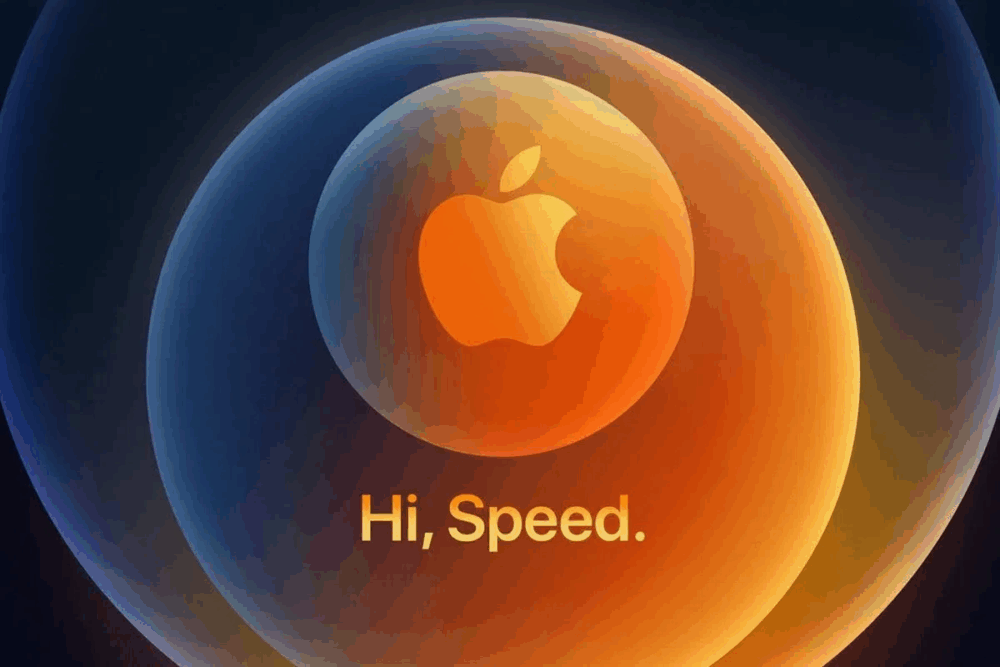Apple Faces Accusations of Drug Promotion
Apple has come under fire from internet users who accuse the company of making inappropriate references to drugs, bordering on outright promotion. Russian politician Vitaly Milonov commented on the situation and even suggested banning Apple products in Russia.
On Tuesday, October 13, Apple held its second major fall event, unveiling four new iPhone 12 models, a smaller version of the HomePod smart speaker, and the MagSafe wireless charger. The presentation made waves not only among tech enthusiasts but also among those who enjoy more than just new gadgets.
Many online users noted that Apple’s presentation featured imagery and color schemes directly associated with drug use. Specifically, the color palette of both the event and the new iPhone lineup closely resembled the appearance of Adderall, a popular medication in the West for treating Attention Deficit Disorder (ADD), which contains amphetamine salts. The event’s slogan, “Hi, speed!”, was also seen as a nod to the slang term “speed” for amphetamines.
The same color scheme and a similar slogan appeared on Apple’s official Russian-language website. While Apple made no direct references to drugs during the presentation, the online community clearly picked up on the implied message.
References to Adderall and Youth Culture
Adderall, the drug referenced by commentators, is a legitimate medication designed to increase the activity of neurotransmitters like norepinephrine and dopamine in the brain. According to psychiatrist and addiction specialist Alexey Kazantsev, Adderall is banned in Russia and strictly regulated under Article 228 of the Russian Criminal Code, but it is commonly used for medical purposes abroad.
Kazantsev explains, “Adderall is a psychostimulant combining four amphetamine salts. It’s banned in our country but officially used worldwide to treat attention deficit, hyperactivity, and narcolepsy. It’s also used to counteract the side effects of neuroleptics.”
However, like any amphetamine-based drug, Adderall is also used recreationally, which is why it is banned in Russia and remains popular among young people. Kazantsev adds, “Adderall is also used as a sports doping agent and is believed to enhance cognitive abilities and induce euphoria. It’s a central nervous system stimulant that can cause serious addiction.”
Adderall’s popularity is further fueled by its use among well-known eSports players. In July 2015, American eSports athlete Corey Friesen admitted to using it, and three years later, another player, Timo Kettunen, claimed to know at least 20 athletes who used the drug. Former professional player Adam Sloss even said he left eSports due to widespread Adderall use among players.
Beyond gaming, Adderall is widely used by students abroad to improve concentration and memory. While moderate therapeutic doses can have these effects, regular unsupervised use leads to severe addiction and side effects like insomnia and loss of appetite. According to annual reports from the United Nations Office on Drugs and Crime (UNODC), amphetamines, including prescription ones, are the world’s second most common drug after cannabis, especially among teens and young adults.
Profit Over Principles?
Experts often describe Apple as a brand built on innovation, perfection, and user comfort. However, Eldar Murtazin, lead analyst at Mobile Research Group, believes Apple’s main principle is profit at any cost. “When it comes to promotion, Apple has no shame. They support diversity, same-sex love, and other things considered normal for today’s America and any corporation. Even Tim Cook has openly supported freedom of choice,” Murtazin said.
Still, Murtazin doubts Apple would intentionally exploit drug culture for marketing, though he doesn’t rule out the possibility that a manager might have played with the theme. “Apple can be accused of many things, including promotion, but calling them drug addicts is a stretch. I think it’s a coincidence, but the subtext is there, and I’ve read about it today. I don’t think Apple’s values have any connection to drugs, but maybe someone decided to send a secret signal,” he added.
In contrast, Russian State Duma deputy Vitaly Milonov holds the opposite view. In an interview with PolitRussia, he claimed that Apple will do anything for profit and doesn’t care about its users. He believes the drug references are a calculated move by Apple’s marketing team. “Apple’s ad campaign is always on the edge. The extra motivation for young people to buy a new phone is this correlation with popular drugs. Apple needs to sell its products, and young people both buy iPhones and use these drugs. That’s the logic,” Milonov said.
Legal and Social Implications
In October 2019, President Vladimir Putin instructed the government to prepare amendments to the Criminal Code introducing liability for drug promotion on the Internet. This initiative led to several bills, the latest of which was submitted to the State Duma in July 2020. The proposed fines for spreading such materials can reach up to 1.5 million rubles. Milonov believes Apple’s actions could be considered drug promotion and should be punished accordingly.
“Honestly, I don’t know much about drugs, but I think our regulatory authorities should pay close attention to this situation. If qualified experts can confirm that the advertising contains clear references and associative combinations of slogans and colors, there should be a response. In particular, the sale of such models could be banned. At the very least, this kind of advertising is inappropriate; at most, it falls under the law banning drug promotion online,” Milonov concluded.



